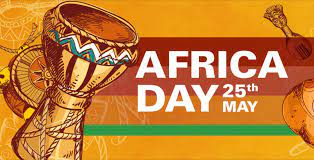|
Getting your Trinity Audio player ready...
|
By Julius Chadeba
Tomorrow is Africa Day remembered as the annual commemoration of the organisation of African unity which was formed on 25 May 1963, which now is recognised as the African Union. It symbolised the determination of African countries to free themselves from foreign domination. Africa Day will not be completely celebrated without remembering the great sacrifices of women to help the liberation of Africa.
Women such as Funmilayo Ransome-Kuti, Winnie Madikizela Mandela, Bibi Titi Mohammed and Mabel Dove –Danquah among other great women helped achieve the dream of a liberated Africa. African countries to achieve liberation they had to go to war and women put aside their fears and joined their male counterparts to help have a free Africa.
Women played a significant role in the journey to liberation as they played traditional roles. They cooked for the liberation fighters in the training camps and even those who were not in the camps would cook food and make sure it was delivered to the liberation fighters who were regarded by the colonial administrations as rebels.
The women cooked and at the same time took the high risk of transporting the food to the fighters. Women were the most essential in that they were the protectors of the fighters as they made sure that the food was not poisoned and was safe to eat, thus they were the mothers in the liberation struggle and they kept the war alive by keeping the fighters alive as they assured they had warm, uncontaminated food.
In Zimbabwe, the women played the role of the chimbwido (collaborators) since they kept information flowing and coordinated the war, and safeguarded the fighters from ambushes. Women had to take the high risk of being spies. They would at times pretend to fall in love with colonial administration soldiers so as to gain information that was used by the fighters to counter and win the war.
Thus women made gallant sacrifices by even giving away their dignity just to achieve independence. Women also took the war to the city where the administration was centred. They led trade unions even without heavy guns and artillery. They fought for African liberation as they sought for free education and equal non-racial rights in the workplace.
They engaged in strikes to end suppressive laws that were put in place by the settler administration. Women also took notes from Mahatma Gandhi‘s teachings and carried peaceful demonstrations such as sit-ins to achieve African liberation. Some were arrested and detained but that did not deter them from fighting.
This ignited their spirit to fight for freedom. In the war, women helped keep the fighters strong and healthy as they played the role of nurses in the camp treatment centres by treating wounded fighters and helping them go back to fight another day. As liberation was gained, women did not just sit back and watch so as to secure African development after independence.
Women went into liberated parts in different countries as commissars, leading administrations and some took the position of secretaries to make sure that the African administrations were kept running and operational.
It should not be forgotten that women safeguarded African independence even after the war by cooking and cleaning for the great founding fathers of the African Union such as the late Robert .G. Mugabe Kenneth Kaunda, Julius Nyerere, and Kwame Nkurumah.
Consequently, it should be remembered that for Africa to celebrate Africa Day, it was through the great sacrifices of women who still today fight for a united Africa






